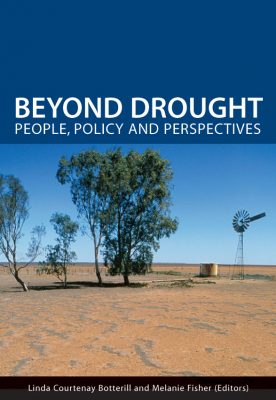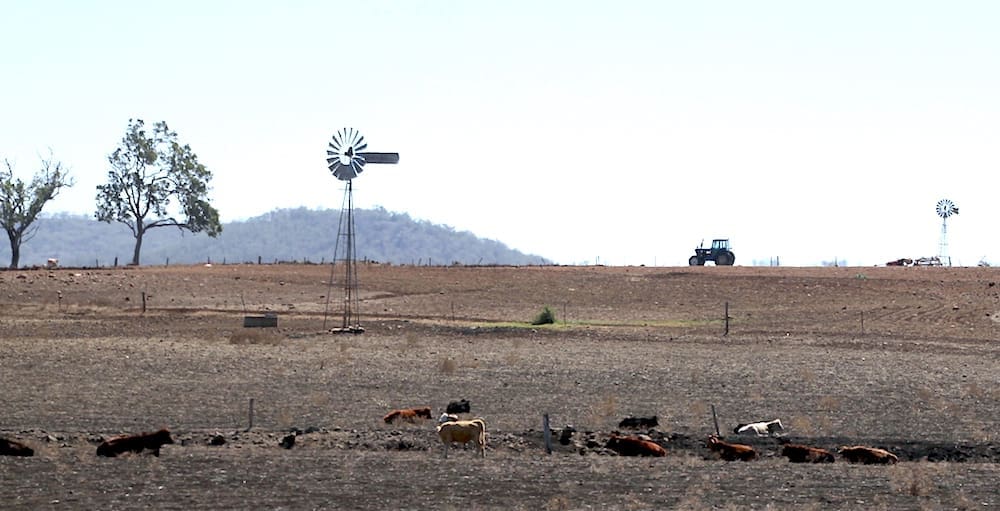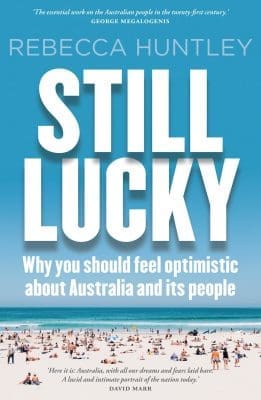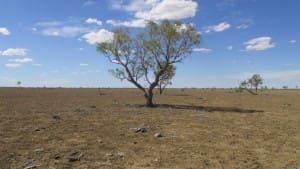OPINION
WE should thank Bryce Camm (QCL 9-8-18 ), Ben Rees, Geoff Edwards (QCL 30-8-18) and Peter Westmore (News Weekly) for initiating a much-needed and long overdue conversation and rethink about “drought”.
This did not appear to generate the discussion that we urgently require – Why?
Drought impacts on farmers but the wider community should be concerned.
Droughts impose extraordinary costs on farm operations generally tipping most operations well into the red.
What droughts basically do is just expose the marginal returns in agriculture.
Yes, most farmers will hopefully recover but generally just about when the next drought impacts again and still in a much weakened financial position (the rural debt figures well demonstrate this).
Rainman (the climate decision support package) suggests a “drought” for southern Queensland occurs about every four to five years. It generally takes about this long to return into the black. What I see is a sawtooth profit graph but with a downwards long term trendline.
However droughts have a much wider impact.
As farmers restrict spending, local communities also suffer and this effect flows onto the wider economy.
However it is not that simple as livestock farmers also purchase feedstuffs for stock, but overall the local economy suffers. Former treasurer Peter Costello said the 2002 drought reduced the growth rate from 3.5% to 2.75% (“Beyond Drought“ (Botterill and Fisher 2003) also mentions this page 111).
There was a similar effect on employment. The 2002 drought only resulted in a 20 percent reduction in farm production, so an industry sector which only contributes about 2.5pc to GDP must have an enormous flow on or multiplier effect on the wider economy to affect the growth rate so dramatically.
As one local business owner said to me years ago “Roma needs a wheat crop” or as a local bank manager said: “I can never get over the wealth a busted arse farmer can generate for the national economy”.
This is backed up by Paul (L.P.) O’Mara who published a paper (from his PhD) in 1984 which suggested that agriculture had a much bigger effect on the economy than its contribution to GDP suggested.
Because of this flow on effect (or multiplier effect) the wider community needs to be concerned at least about the financial health of agriculture as it impacts significantly on the national economy. One comment about Paul O’Mara’s paper was that the 1982 drought may have precipitated the 1983 recession!
Governments do provide assistance to agriculture, but is it well targeted and does it contribute to resilience or are unfortunately “perverse consequences” too often the outcome?
There is an old saying about “give a man a fish and you feed him for a day but teach him how to fish and you feed him for a lifetime”. I would suggest that government assistance unfortunately largely falls into the first category and furthermore tends to reward reactive management whilst failing to promote proactive management. Hay drops, whilst well intended and outstanding credit to those who contribute and organise them, unfortunately only feed stock for a very short time. I would suggest that their resources and energy would be better directed towards encouraging policy which develops, encourages and rewards drought resilience for the benefit of all
Agforce has a drought policy but it is far too simplistic and provides little to build on. This is concerning as they developed the ClimEd package several years ago which had two components – one to understand climate better and the second was to use this to help develop individual producer resilience to “drought”. Why have they not continued to build on this visionary initiative?

‘Beyond Drought’ was authored by Linda Courtenay Botterill and Melanie Fisher and published by the CSIRO in October 2003. Link to publication can be viewed here.
Did “Beyond Drought” (p 164) echo this with the comment: ”The number of farmers who have attended prayer meetings for rain probably exceed the attendance at scientific workshops on El Nino”.
My concern is that we have spent billions on “climate change” and mostly on mitigation yet poorly addressed climate variability which would also contribute much to adaption to climate change as well.
Because droughts ultimately impact on the wider community, the community needs to be also an involved stakeholder.
They at least need to reflect on the inhibitory constraints that governments impose, hopefully by ignorance not by intent.
Bill Burrows and his co-workers firmly established the severe impact trees have on grass production. This is a dramatic impost on producers with a “green” block especially in a drought when it is amplified significantly.
Graziers are frequently accused of overstocking their country causing droughts.
However is there a corresponding obligation of the wider community to manage their wildlife and destock kangaroos in dry times? My experience suggests that they are about 50pc of stocking pressure in dry periods.
Surely the wider community needs to take this responsibility seriously as vegetation and wildlife together seriously impede producers’ ability to manage for droughts.
However at some out of the ordinary stage the wider community needs to become actively involved in drought resilience. Strategic feed stocks such as grain, molasses, hay and protein meals need to be considered. Cargill has stopped crushing cotton seed with a resultant acute domestic shortage of cotton seed meal (amongst other meals). Farmers supposedly require a social license to farm, should there be a corresponding strategic license or obligation to produce food and supply critical food stocks? A local feed supplier is looking at importing cottonseed meal from Africa. This should be concerning as we grow significant amounts of cotton in Australia, why do we have to import it?
Mark McGovern (QUT) with the customs house agreement questioned the myth of exporting 60-70pc of our food production and suggested it was much less on a net basis. This was done 20 years ago and our population has grown dramatically since. When we factor in recurring droughts, our food resilience or food self-sufficiency may not have such a comfortable margin as we are led to believe and droughts should be prioritised much higher. Julian Cribb in “The Coming Famine” questioned our lack of understanding of the strategic value of agriculture.
In 2007-8 we only produced enough wheat for our domestic requirements.
One of the findings of Rebecca Huntly in “Still Lucky” (She spent 9 years listening to groups of ordinary Australians) was that Australians were concerned about our future ability to feed ourselves. Another finding was the reluctance of our politicians to make the important strategic decisions.
Drought is a complex issue and we could ask whether it is a symptom of a much deeper cause. If farming was more profitable would droughts impact so severely?
I thus suggest that droughts are now not feed or water droughts of the past but “profit” droughts where droughts just expose the underlying poor profitability of farming.
This drought will hopefully end but the Tax Office (and financial institutions) will get first call on any profits. This impacts on the ability of farmers to restore much needed equity and thus a buffer for the next drought. Should we consider exempting agriculture from paying taxes as India does?
If we factor in the multiplier effect this concept might even be revenue positive as well as attracting much needed domestic capital into agriculture.
All this is of no value to producers who have already endured many years of drought. What for them? Should we formalise the ad hoc household support using the concept of a universal income as suggested by several authorities as a model. The move by the EU (where agriculture is 40pc of the EU budget, suggesting that they value agriculture highly) from a production-based subsidy to an environmentally-based subsidy could also be a model also to consider to keep farmers on the land during low production periods and encourage environmental initiatives. Geoff Edwards of the Qld Royal Society has a paper on this subject.
An opinion piece by rural journalist and now UNE communications manager Mathew Cawood stated: “Farmers hate droughts because it hurts. Politicians hate droughts because hurting farmers make demands on their resources and loyalties. Economists hate drought because when politicians respond to hurting farmers they invariably get it wrong”.
We need to get this right sometime soon but Labor does not appear to have a good record of understanding regional economies. The “triple knock” of the live export ban, shire amalgamation and the vegetation act all adversely impacted on regional economies. A sustainable community needs a sustainable income base. Agriculture is usually the main economic driver of regional economies and anything which affects agriculture further reduces regional economies and thus population.
All this further reduces regional populations and inhibits decentralisation. Australia is already a highly urbanised country, we do not want it more centralised.
Is this just ignorance or just sheer bloody mindedness?
A RIRDC internal workshop on emerging issues in agriculture stated that there was no clear vision or objectives for agriculture or regional Australia.
Sher and Sher (1994) were astonished at the absence of a rural development policy in Australia and said the entire country was deeply dependant on Rural Australia.
They suggested that Australia should construct a rural development policy giving priority to six goals: (a) a growing rural population base; (b) rural people and communities reaping an equitable share of the rewards derived from rural resources; (c) a growing and diversifying rural economic base; (d) a growing rural employment base; (e) an improved quality of rural life; and (f) stronger, more cohesive rural communities. While they sound rather innocuous at first, acting upon these six goals would entail fundamental changes in rural policy and programs.
And “The day is fast approaching when Australia will confront the bitterly ironic dual reality of record profits/ export earnings from the primary sector and record numbers of traditional primary producers (and of the businesses dependent upon them) battling just to survive.”
“From a hard-nosed economic perspective, it makes sense to protect the rural goose that continues to lay so many of Australia’s golden eggs. But if the object of one’s protection and assistance is improperly understood, the help one provides may end up doing more harm than good. Agriculture remains a tremendous generator of jobs. It does so through a powerful employment multiplier-effect.”
I believe we need to reconsider dams and small on-farm feedlots as drought mitigating initiatives and remove the legislative barriers if we are really serious in managing droughts . The same water for the same stock but in a small drought feedlot requiring intensive water permits defies logic.
This drought will have dramatic effects on regional economies so we need an urgent bipartisan whole of government approach now to minimise the consequent flow on effect. Did the 1982 drought precipitate the 1983 recession? The significant shake out of farmers following the 1990-3 drought should not be repeated if only from a social perspective.
“Beyond Drought” was a whole new analysis of drought. Why have we not continued to build on it? They even suggest the notion of drought is meaningless where “extremes” are the norm. I have argued that we ignore floods at the other end of the climate spectrum and we really should be discussing a Climatic variability policy or extreme event policy rather than just the one extreme of drought. The 2010-11 floods may have caused just as much financial and social hardship as droughts.
Maybe the Canberra circus should stop the musical chairs charade and look outside the ring and take Rebecca Huntley’s comment seriously.
This drought will impact on the economy, what we do will determine its level of economic and social fallout and the perverse consequences of future droughts.
I would suggest that “Drought is the consequence of farmers’ (and governments’) failure to manage climate variability”.
Charles Nason
“Banoona”
Roma 4455




